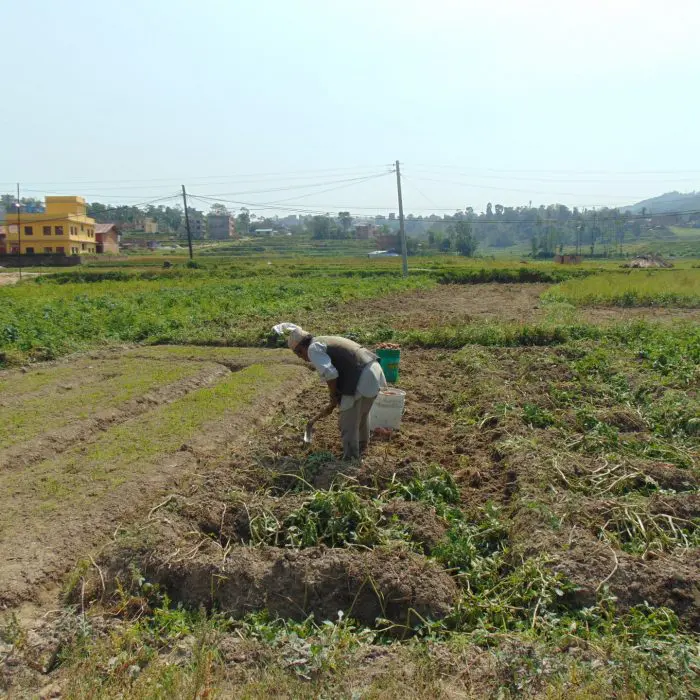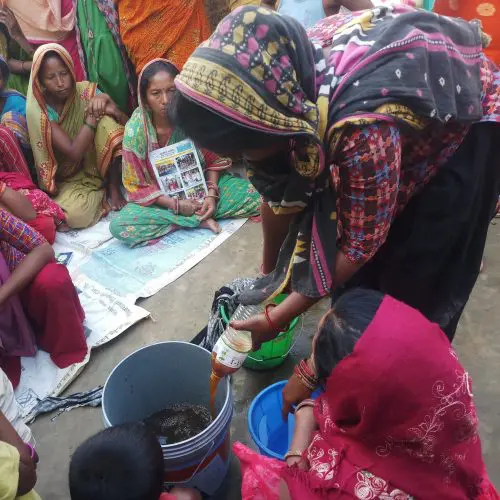Sustainable Agriculture

With 80% of all Nepalese engaged in subsistence farming, life depends on healthy crops and animals. H.E.L.P. teaches sustainable and efficient ways to raise livestock and nurture crops. This is critical for both income and health.
The type of training depends on the needs of the community. Working through our own extension agents called Group Representatives (GR), we conduct trainings in how to grow a variety of agriculture products and how to raise goats, chickens, water buffalo and more.
John 15:5, “I am the vine; you are the branches. If you remain in me and I in you, you will bear much fruit; apart from me you can do nothing.”
Effective Microorganism
First developed in Japan, effective microorganism or EM is a bacteria which breaks down dead matter. It is a quick and easy way to make fertilizer. Also, it is used in livestock production. Not only is this bacteria found locally, but once the first culture is bought, it can be reused. H.E.L.P. provides these cultures at trainings to encourage the use of natural fertilizer.
The process of making this fertilizer is simple. Leaves, bamboo, and other compost is cut up and ground. Then, water is added along with the effective microorganism within a container. After about a week of fermentation, the mixture is ready to be used.

Donate EM to An Entire Farmer Group

We provide effective microorganism (EM) for each of our organic farming training. Not only is it harmless to humans, but offer an inexpensive and natural way for farmers to fertilize their crops. To provide a farmer class EM costs $50.
